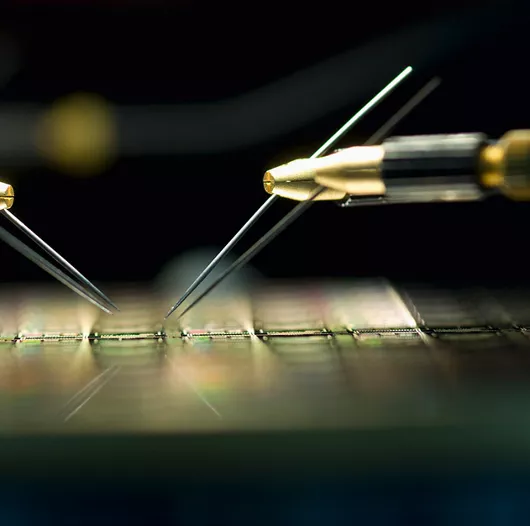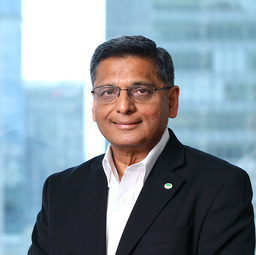The Role of Emerging Technologies in Accelerating Digitalization


As enterprises look to speed up the digitalization of their operations, new technologies continue to play a greater role in helping organizations with this transformation. This trend is especially prevalent in the manufacturing, energy and mobility markets, as companies look toward those technologies that can help them successfully position themselves for the post-COVID-19 work environment.
When we look at the status of different industries, we get some insight into the technologies best suited for their continued digitalization, and what can be expected as digitalization continues to expand across the economy.
With regards to manufacturing, what we are seeing now is a primary framework for what might be called “Manufacturing to Zero.” The goal of this concept is to reduce (as close as possible to zero) items like inventory, security threats and accidents on the proverbial shop floor, and eliminate factory breakdowns, downtime and production line waste. Such goals can be reached through the use of an IoT framework.
Much like manufacturing, the energy industry is also ripe for transformation via digitalization. A combination of factors, including governmental mandates, societal pressure for newer, cleaner energy options, electrification of vehicles, and greater availability of battery storage systems are converging. These factors profoundly influence the energy industry, leading to a “3-D framework” that could transform the marketplace.
The three “D’s” — decarbonization, decentralization and digitalization — are laying the groundwork for new changes among energy providers and technology developers. With decarbonization, we are seeing a shifting of energy generation, transformation and distribution to a lower-carbon future, as renewable energy becomes a larger part of the energy plans that governments are implementing. Decentralization involves practices like new diesel-generating models that are distributed in a connected way and closer to the point of use. Virtual power plants are also being built, adding to the growth in digitalization, and more storage capacity. One of the major benefits to all of this is that with more flexible infrastructure, consumers can become their own net exporters of power, sending it back to the grid.
A lot of changes are also coloring the palette of the transportation mobility industry. Electrification, autonomous cars and last-mile delivery services are all adding to the connected mobility market, and attracting increasing interest from public transit agencies and private operators. Mobility has become so large that one might call it a “bed-to-bed” industry; from the time a person gets up until the time they go to bed, they are faced with, and using, different mobility solutions. Predictive analytics, artificial intelligence (AI) and big data all play a role in the transforming mobility market. The growth of 5G mobile technology is also enabling greater advancements and demands in the industry.
In the future, we’ll continue to see different solutions becoming more and more available to both consumers and enterprises — whether those are drones, delivery vans or smaller remote-controlled vehicles.
For the passenger car side of the equation, we’ll likely see the advent of the connected vehicle, where all the different technologies are blended into one platform. And, just like a smartphone, connected vehicles will be able to tap into a broader infrastructure that offers a variety of easy-to-use services.
The array of technologies that will drive this wave of digitalization are diverse and exciting. AI, analytics, automation, IoT, 5G, augmented and virtual reality, blockchain and collaborative robots are just some of the technologies that are crucial and critical to the advancement of digitalization. And as digitalization expands, we’ll see workspaces become even more virtual, as this virtual megatrend continues to grow.
At Hitachi R&D labs, we are working on advancing state-of-the-art industrial AI: We are applying it to areas such as predictive maintenance and repair as well as operations optimization to improve productivity, safety and the quality of products.
In the energy sector, we are developing a digital platform and applications to forecast and manage energy production from renewable resources. We have created one of the first 5G labs in our Santa Clara, California, facility. There, we are running trials for several applications, using 5G for the factory of the future, and also for IoT edge, particularly in sensing and robotics.
In the mobility sector, we are creating a digital platform for integrating sensor data from vehicles and the infrastructure to improve the safety and performance of vehicles, especially for autonomous driving. We are also enabling the transition to multimodal mobility. By combining blockchain and distributed ledger technologies with AI and analytics, we can provide end-to-end integration and optimization of smart value chain and asset management, where there are many stakeholders involved.
As the trend toward sustainability accelerates, we are developing a digital platform and analytics technologies to enable Hitachi and our customers to transition to the circular economy. We’re working to support economic growth while reducing waste, pollution and the consumption of natural resources.
We live in an exciting world, with exciting times ahead of us. Certainly, the use of digital technologies and the increasing pace at which these technologies are adopted will improve quality of life. These dynamics will improve productivity and provide social, environmental and economic value for individuals, enterprises and for society as a whole.

Umesh leads innovation in big data, advanced analytics and AI solutions for manufacturing, energy, mobility and other industries. He has +35 years of research experience. He joined the R&D Division of Hitachi America, Ltd. in 2013 after 20 years with HP.